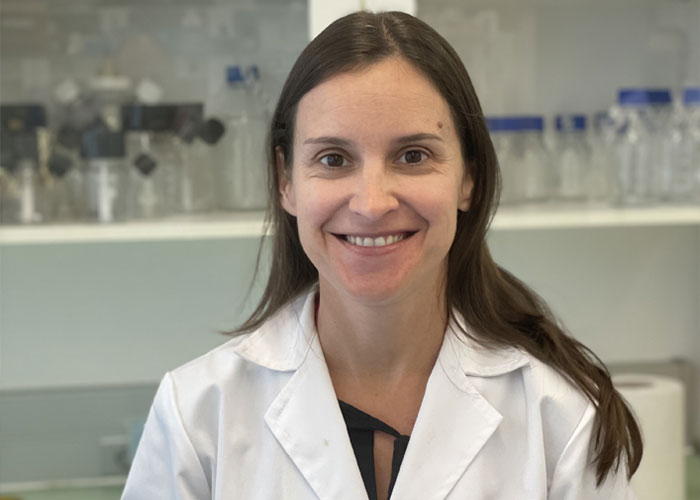dr. FABIANA CSUKASI
PRINCIPAL INVESTIGATOR
Dr. Fabiana Csukasi obtained her PhD in 2010 at the University of Malaga, Spain, where she studied how signaling pathways control developmental programs. After finishing her PhD, she moved to the USA to continue my career as a postdoc at Boyce Thompson Institute in Ithaca (NY), the University of Southern California (USC) and the University of California Los Angeles (UCLA). During her career she used a variety of models, from plants to zebrafish to humans to understand how signaling pathways control different developmental processes, always with a strong molecular biology perspective.
During her stay at Dr. Krakow´s lab (UCLA) she transitioned from basic to
translational science with the goal of applying all the knowledge previously acquired to help people with severe rare diseases. The major focus of her research at Dr. Krakow’s lab was to uncover the molecular basis of skeletal dysplasias, inherited human disorders that affect the skeleton. They performed exome analysis in patients with a variety of skeletal disorders to identify the gene responsible for the defects observed. “Once the gene is uncovered, the main goal is to understand the molecular mechanism that leads to the disease”. For that purpose, her work integrates a variety of molecular and cell biology techniques to describe in detail the mechanism of disease. The long-term goal is to use these discoveries to develop novel and personalized treatments for skeletal diseases.
In 2020 Dr. Fabiana Csukasi started a new researcher position at Bionand, Malaga where she continues her research in skeletal diseases. She has been awarded with a joint initiative of the Spanish Ministry of Science and the European Marie-Sklodowska Curie Action to work on the development of organoids, 3D structures that recapitulate cartilage and bone tissue. She is currently using skeletal stem cells to develop organoids and generate models of disease, a big necessity in the field of rare diseases in which animal models are scarce. She also leads the project in signaling pathways of metabolic disorders mediated by DEPTOR.

